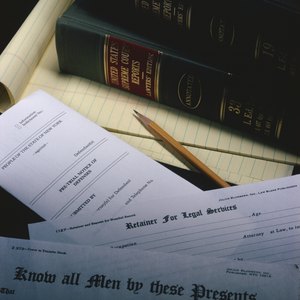
Unused property or land may be claimed under the law of adverse possession -- sometimes referred to as squatter's rights -- which allows a person who has been occupying or otherwise using land for a certain period of time to claim that land and to be recognized as its legal owner. For a person to successfully claim property by adverse possession, he must satisfy a number of conditions.

Know the rules. In the U.S., a person claiming adverse possession must be in possession of the property for at least seven years. This can mean living on the property or substantially altering the character of the property -- by building on it, for example, or by cultivating and making cosmetic improvements to it. The possession must be adverse or hostile to the true owner of the property, whether or not the true owner's identity is known. Someone who is paying rent or is on the property with the owner's permission is not occupying the property in an adverse or hostile manner.

Act transparently. The occupation of the property must be apparent for all to see and not done secretly by the person claiming adverse possession. This ensures that the legal owner knows, or ought to know, that his property is being adversely occupied. The possession of the property must be continuous for the requisite seven years, and should this period be broken at any time -- for example if the adverse possessor pays rent to the true owner -- then the period will reset.

Watch the calendar. The property must be used exclusively by the person claiming adverse possession over the seven-year period, and during that period, she must exclude the true owner from using the property. If the true owner uses the property during the seven-year period, adverse possession cannot be claimed. One way to demonstrate an intention to exclude other people from possessing the property in question would be to erect walls or fences around it.

Consider local laws. When the above requirements have been satisfied, and no satisfactory defense can be offered by the true owner, the person in possession will have full legal title to the property. In some jurisdictions, the person must establish that she has a claim of right, which might involve showing an intent to take the unused property for herself or a belief that she has a rightful claim to the property.
Tips
When claiming adverse possession, a person may only gain legal title to property he actually possesses. For this reason, it might be advisable to clearly delineate the property that an individual wishes to claim with fences or walls, as mentioned earlier.
Warnings
Payment of rent or other tacit acknowledgement of another person's legal title to land by an adverse possessor will defeat her claim.
References
Tips
Warnings
Writer Bio
Conor Breslin is a solicitor in the Republic of Ireland. He holds a Bachelor of Laws degree, as well as a degree in corporate law, after which he qualified as a solicitor with the Law Society. Breslin has authored many legal papers and essays, often covering intellectual property and human rights.

